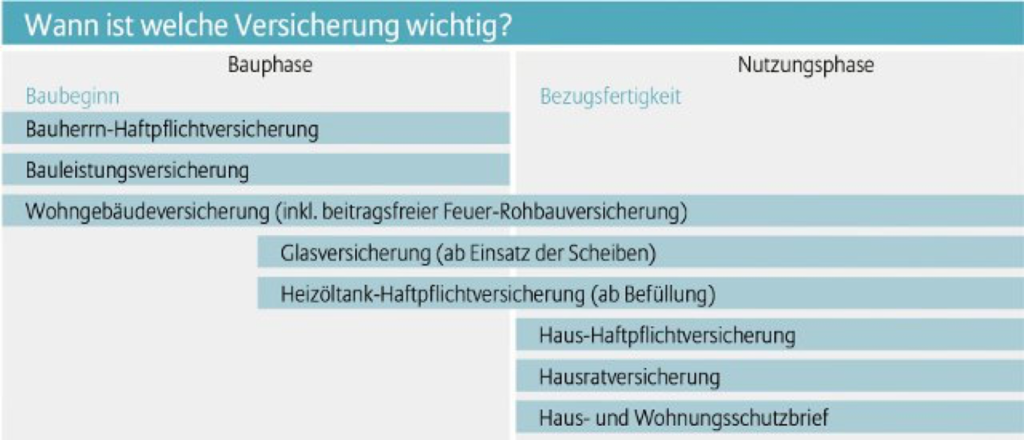In the construction contract, the owner and the construction company find each other. Of decisive importance are the regulations regarding scope of services, construction material and quality. In addition, understanding all contract clauses is very important – because: Construction companies have a lot of experience with contract texts, prospective builders rather rarely. For this reason, risks are often unilaterally transferred to the building owner. Under certain circumstances, this can be expensive for the builder.
the essentials in brief
- According to the Association of Private Building Owners, the bill of quantities is unsatisfactory in terms of clarity and scope in about two-thirds of all construction contracts.
- Construction contracts often do not include dates for the start and completion of construction. Then the builder has no legal recourse in case of delay in construction.
- Payments must correspond to work actually performed and free of defects. Since providers often overstate partial payments, a good payment plan is beneficial.
1. scope of services or specifications in the construction contract
The central element of a construction contract is the detailed scope of services or the bill of quantities for the construction measures. The scope of services lists not only the individual partial services, but also their individual work steps. In addition, details about the type and quality of building materials and technical equipment can be found here. This shows exactly which services are included in the contract and how much the construction company charges for what. This is the only way to ensure an accurate comparison between offers.
The scope of services therefore provides information on whether the offer is really good value for money. It happens that providers do not disclose all facts in their offers. In such cases, suppliers are helped by the fact that prospective builders are not familiar with all the details. For example, the lack of important and expensive partial services is sometimes not sufficiently explained. This leads to considerable additional costs that the client did not originally calculate.
The construction company and the owner refer to the bill of quantities in the event of ambiguity about the construction measures. Therefore, every builder should be clear in detail what exactly is included there and what is not. Neither verbal agreements nor catalog texts can substitute for a detailed examination. Take your time when reviewing and it is best to consult independent experts. Providers must adjust the contract several times in cases of doubt. Because only the construction companies profit from ambiguities. Also, make sure there are no additions such as “or similar”. Read here how the construction company search can be made easier for you.
What is often missing from the bill of quantities:
- Floor slab or basement
- Elements of construction site facilities (e.g., water supply and waste disposal during construction, construction roads, safety measures, storage, etc.).
- Heating and hot water
- exact determination about quality of sanitary facilities (e.g. type and color of tiles)
- Insurance of the construction site (builder’s liability insurance, fire insurance, construction performance insurance)
- Connection of the house to the supply network
- Building ground risk (concerns distribution of risks: who pays for countermeasures, e.g. a foundation for the construction, in the event of unexpected difficulties with the bearing capacity of the ground).
Get an overview!
The Almondia building consultant will talk you through the specifications of a specific offer or contract. This is how you uncover all the missing elements. In addition, we independently assess offers and contracts. If you wish, we can also show you good alternatives to a specific offer. Use Almondia’s expertise to help you navigate the often confusing landscape of bids and construction companies. In any case, this will strengthen your negotiating position vis-à-vis the construction companies and you will certainly find the right offer for you!
2. it is essential to record in the construction contract: Dates for start of construction and completion
Construction companies are reluctant to commit to precise deadlines. Therefore, if the builder does not insist on it, there will be no exact time specifications in the contract about the start of construction, individual partial services and completion of the house. For builders, an agreement on deadlines is important; declarations of intent and approximate information are not enough. Otherwise, delays in construction cannot be legally traced.
In addition to the dates for the start of construction and completion, it is also advisable to have a schedule of the individual partial services. In the best case, all the services that are required before the start of construction and are important for the start of construction (such as the compilation of documents for the building permit) are also regulated there.
In general, delays are common for many reasons. Not only do they cost a lot of money directly in construction, but they also have other subsequent costs (longer rent payments in the previous accommodation, then often with simultaneous repayment of construction loan interest). It is possible to agree with construction companies on contractual penalties in case of delay. These then accrue every week over time. The amount depends on the delay and usually ranges from 0.1% to 5% of the total price.
3. quality controls
The construction contract often advertises high quality controls from external companies. In most cases, however, a developer will not have a truly independent investigation conducted. The companies that carry out such checks, e.g. the blower door test, have usually been working with the developer for a long time. On the other hand, construction supervisors appointed by the client, e.g. architects, provide a more objective assessment already during the construction phase. Therefore, the contract should ensure site access for external assessors at all times (this is especially important for turnkey houses).
4. fixed price
Turnkey commissioned houses usually have a fixed price. But it often doesn’t stop there. Pay particular attention to whether the fixed price has a limited validity. If the fixed price is given with a validity of 6 or 12 months, the provider can increase the prices in case of delays in the construction. In addition, the fixed price refers only to the construction work and building materials specified in the bill of quantities. Pay particular attention to details such as the number of sockets, quality of floors and tiles, as well as sanitary facilities, heating systems, etc.. – otherwise costs can arise due to further extras.
5. house construction payment plan
It happens that construction companies do not account for progress payments for partial services in a transparent manner. The progress payments should always correspond to the equivalent value of the partial performance rendered (and free of defects). For example, if the shell is estimated at 60% of the total price, this gives reason for doubt. This is because the shell only accounts for about 45%. Here, you should know how fair and transparent partial payments look like and what can be done if necessary. to do in the event of defects. A detailed payment plan must then be drawn up.
5 years liability in case of defects – also in case of insolvency of the construction company
When building a house, rarely everything goes perfectly smoothly. This is simply due to the complexity of the matter. Therefore, defects occur in the vast majority of cases. Construction companies are required by law to be liable for defects for up to five years after completion. But what if the construction company goes bankrupt during this time? The shrewd (or well-advised) builder takes precautions against such an eventuality when the contract is signed. Before signing the construction contract, negotiate that the supplier will provide 5% – 10% of the contract sum over a five-year liability period as security – even in the event of insolvency, the builder will then be entitled to this money to rectify defects.
6. contracts for prefabricated houses
The term “prefabricated house” may suggest that the construction company takes all contingencies, risks and decisions off the buyer’s hands. But this is not true. In any case, the buyer of a prefabricated house becomes a fully responsible builder. As such, he must look closely at how a number of factors are doing. This starts with the property and goes all the way to the detailed examination of the purchase contract.
Most offers refer to a scope of services from OK (“upper edge of the floor slab”), whereby the builder must pay for the construction of a floor slab (or optionally a basement) himself. Since the floor slab or basement is then often aligned by another company, there may be coordination difficulties. In addition, the construction company often does not independently complete the connections for electricity and water. The expansion stages are also often defined differently. Go through sales contracts with experts before signing!
The new law on contracts for work and services
At the beginning of 2018, a new regulation of the law on contracts for work and services came into force. With this new regulation, the so-called consumer construction contract was created, which is intended to provide better protection for the building owner in the face of long construction processes. Providers must comply with the new provisions in their contracts.
The right of withdrawal was also reformed. You can now revoke the contract 14 days after signing. By the way, the provider must explicitly inform you about this. In any case, this provision gives you the opportunity to go over the construction contract with independent experts even after it has been signed and to withdraw from it under certain circumstances. Here you will find everything you need to know about the background and the specific provisions of the reformed law on contracts for work and services.




